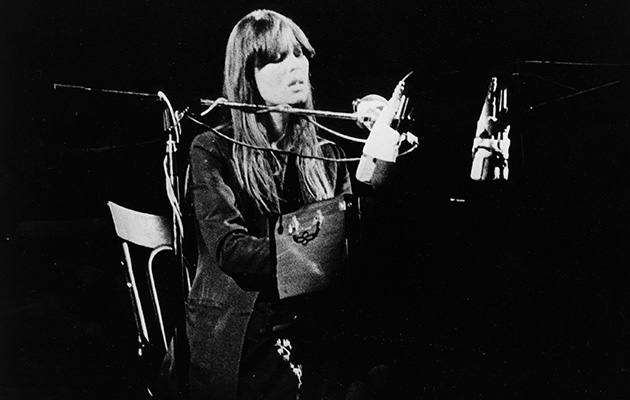Danny Fields worked at Elektra originally as PR for The Doors. He later signed The Stooges and MC5 to the label and went on to discover and manage the Ramones. He had known Nico since she first appeared on the New York scene in 1963. Like Cale, he’d been disappointed with Chelsea Girl, which in his opinion had been blighted by producer Tom Wilson’s bland folk-rock settings and disfigured by Larry Fallon’s syrupy string arrangements.
“There were some good songs on it, obviously, by Jackson Browne, Bob Dylan, Lou Reed, John and Tim Hardin,” Field says. “But it was OK rather than earth-shattering, like The Velvet Underground. Her singing was amazing, though, and what she did with Jackson’s ‘These Days’ was great. But to me, Nico was the sound of ‘All Tomorrow’s Parties’ and Chelsea Girl was more like a Judy Collins record. I knew she had more to offer and so did she. She wanted people to realise there was more to her than beauty. She hated being famous just for that. In fact, she came to hate her beauty. In her more difficult later days, she purposely became unattractive. In those days, she was the Moon Goddess. That was her nickname. She was unstoppably beautiful.
“But that wasn’t enough for her, it never was. She was desperate to be taken seriously,” Fields continues, echoing Cale. “She was defined by her need to be other than beautiful and so, I think it would have been the summer of 1968, she told me she wanted to make an album of songs she’d been writing. I had never thought of her as a songwriter, but from somewhere she’d got a harmonium – I think Leonard Cohen may have given it to her, or had something to do with her getting it – and she’d written these songs on it. She came around to my apartment and played some of them. I thought they were incredibly different, scarily so, and also wonderful.
“She already had a title for the album she wanted to make, ‘The Marble Index’. It was from a poem by Wordsworth she’d come across that was inspired by a bust of Isaac Newton that Wordsworth remembered from when he’d been a young man at Cambridge University. I thought it was incredible. I mean, who read Wordsworth in 1968? In 1968, people were reading Baudelaire and Rimbaud. They were the poets in vogue. Wordsworth hadn’t been fashionable since about 1779. But this Wordsworth poem, it had the lines, ‘Newton with his prism and silent face/The marble index of a mind forever voyaging through strange seas of thought, alone.’
“I know how that must have resonated with her. It was a craving of hers to be alone. Alone for her was sexy, alone was interesting, alone made people curious and want to know more about you and alone made you magnetic. Whatever, she was clearly very serious about this. I was in good stead at the time with Jac Holzman at Elektra and I said I’d take her to see him.”



